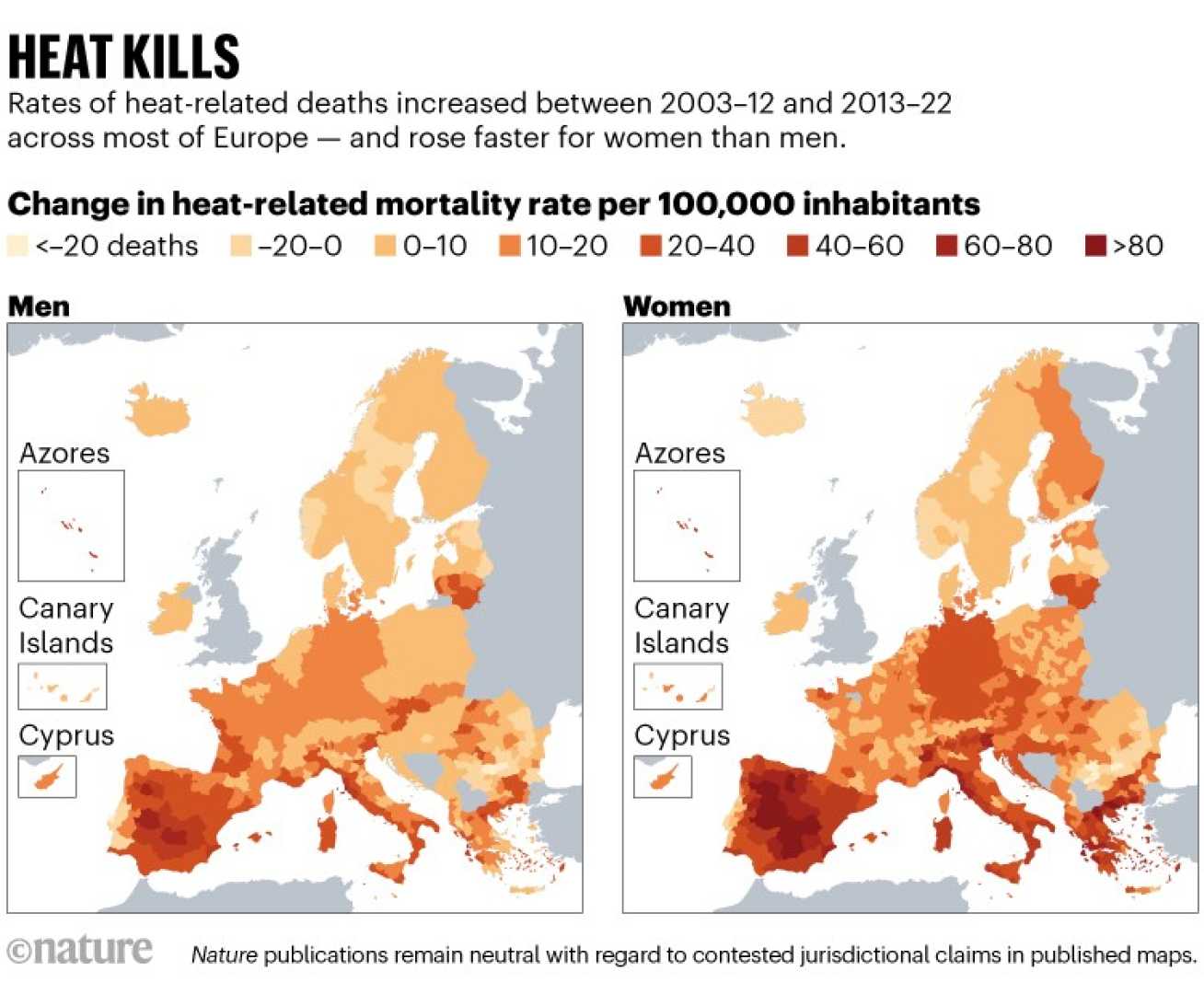World
Europe Faces Deadly Heatwave Amid Rising Temperatures and Climate Change

LONDON, England — Europe is grappling with a severe heatwave, as temperatures soar above 40 degrees Celsius (104 degrees Fahrenheit) in several countries. The ongoing crisis has already claimed multiple lives, highlighting the escalating consequences of climate change.
In Spain, two farmers tragically lost their lives while battling a wildfire in Catalonia. They were trapped by flames as a farm worker called for help when the fire spread across a vast area. Similarly, in Italy, two beachgoers died from heat-related illnesses on the island of Sardinia, and an 80-year-old man suffered heart failure after walking into a hospital in Genoa.
Additionally, a 10-year-old American girl collapsed and died while visiting the Palace of Versailles in France, following reports that she lost consciousness in front of her parents. French authorities confirmed two more heat-related fatalities, with over 300 people requiring emergency care.
The current heatwave is part of a disturbing trend, as the United Nations climate agency points to the rise in extreme temperature events due to human-induced climate change. Last month, Spain experienced its hottest June on record, with an average temperature of 23.6 degrees Celsius, while England confirmed similarly record-breaking temperatures.
According to the Met Office, the likelihood of encountering extreme heat days has increased significantly, marking a 50% chance of hitting 40 degrees Celsius in the UK within the next dozen years. This alarming projection aligns with recent research indicating that temperatures could surpass 46.6 degrees Celsius (115.9 degrees Fahrenheit) in the near future.
Dr. Amy Doherty, a climate scientist at the Met Office, stated, “Our climate projections indicate that hot spells will become more frequent in our future climate, particularly over the southeast of the UK.” With predictions of intensifying heatwaves, experts urge swift action to mitigate greenhouse gas emissions.
Climate change’s impact is unevenly distributed, affecting the most vulnerable populations. Dr. Radhika Khosla, an associate professor at the University of Oxford, noted that those lacking access to air conditioning systems face the highest risk of heat-related health issues.
As heatwaves continue to rise in frequency and intensity, experts warn of the need for urgent infrastructure adaptations to support public health and safety in the changing climate.












